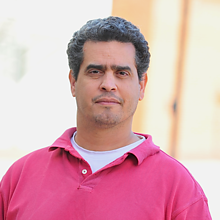Porter Briefs Congressional R&D Caucus on Evolution of Smartphone Technology

Adam Porter, a professor of computer science with an appointment in UMIACS, recently briefed the Congressional Research & Development Caucus on how federally funded research has spurred innovations like today’s smartphones.
“Deconstructing the Smartphone: How Federally Funded R&D Enabled the Technologies We Can’t Live Without,” demonstrates how seemingly unrelated advances in microprocessors, miniature cameras, GPS software and accelerometers—which all trace their roots back to federally funded early-stage scientific research—have resulted in devices like the smartphone, that we now consider essential for everyday business and personal use.
“We sometimes think smartphones just appeared out of nowhere,” Porter says. “I want to help people understand what it took to make these technologies so simple and ubiquitous.”
IEEE sponsored the June 24 briefing in the Rayburn House Office Building that featured Porter and two other speakers.
The Research & Development Caucus was established in 2004 to inform members of Congress and their staff of the economic, societal and security-related benefits derived from federal R&D investments.
“It’s not much of a stretch to say that the U.S. government has been the most effective agent of innovation in the world,” Porter says. “Deconstructing something we all depend on everyday, in this case a smartphone, shows in a clear-cut, yet easy to understand way, how federally-funded R&D leads to real change in the lives of everyday Americans.”
